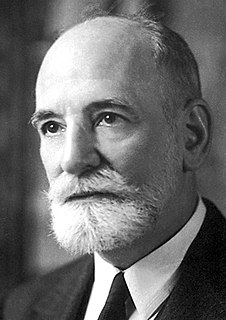A Quote by Lawrence Kohlberg
Right action tends to be defined in terms of general individual rights and standards that have been critically examined and agreed upon by the whole society.
Related Quotes
Any group or "collective," large or small, is only a number of individuals. A group can have no rights other than the rights of its individual members. In a free society, the "rights" of any group are derived from the rights of its members through their voluntary individual choice and contractual agreement, and are merely the application of these individual rights to a specific undertaking... A group, as such, has no rights.
Individualism regards man - every man - as an independent, sovereign entity who possesses an inalienable right to his own life, a right derived from his nature as a rational being. Individualism holds that a civilized society, or any form of association, cooperation or peaceful co-existence among men, can be achieved only on the basis of the recognition of individual rights - and that a group, as such, has no rights other than the individual rights of its members.
The way we need to view aid is as a fulfillment of rights, and Mexico, as other countries around the world, have agreed and signed the Universal Declaration of Human Rights and the covenants of Human Rights and that includes the right to food, the right to water, the right to housing and the right to education.
My own sense as an American is that we have begun to experience the disadvantages of framing virtually all moral issues in terms of individual rights. American history has consisted of swings back and forth between rights talk on the one hand and talk of duties, responsibilities, and the common good on the other hand. Recent decades have seen a big swing toward rights, and conceived in very individualistic terms, which hasn't always been the case even with rights.
Rights mean you have a right to your life. You have a right to your liberty, and you should have a right to keep the fruits of your labor....I, in a way, don’t like to use those terms: gay rights, women’s rights, minority rights, religious rights. There’s only one type of right. It’s the right to your liberty.
A pure Democracy, by which I mean a Society consisting of a small number of citizens, who assemble and administer the Government in person, can admit of no cure for the mischiefs of faction. A common passion or interest will, in almost every case, be felt by a majority of the whole; a communication and concert result from the form of Government itself; and there is nothing to check the inducements to sacrifice the weaker party, or an obnoxious individual. Hence it is, that such Democracies have ever been spectacles of turbulence and contention; have ever been found incompatible with personal security, or the rights of property; and have in general been as short in their lives, as they have been violent in their deaths.
There is a very broad theory that society gets the right to hang, as the individual gets the right to defend himself. Suppose she does; there are certain principles which limit this right. Society has got the murderer within four walls; he never can do any more harm. Has society any need to take that man's life to protect itself? If any society has only the right that the individual has, she has no right to inflict the penalty of death, because she can effectually restrain the individual from ever again committing his offence.


































